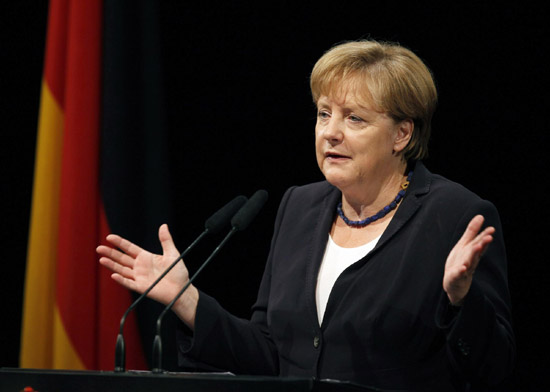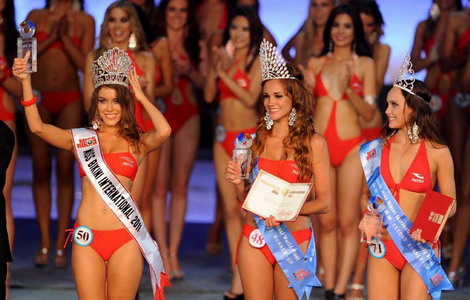Germany's Merkel faces biggest test in euro vote
Updated: 2011-09-29 15:11
(Agencies)
|
|||||||||||
 |
|
German Chancellor Angela Merkel speaks during a ceremony of the German Federal Constitutional Court (BVG in Karlsruhe September 28, 2011. [Photo/Agencies] |
BERLIN - German Chancellor Angela Merkel faces a battle for her political survival on Thursday when some of her coalition, worried about throwing good money after bad by bailing out Greece, could humiliate her in a parliament vote on euro-zone rescue schemes.
Support from the centre-left opposition will ensure Germany passes the bill on new powers for the European Financial Stability Facility (EFSF), which some countries like Finland have ratified but others, including Slovakia, are disputing.
But if dissent in her coalition forces Merkel to rely on opposition votes to pass the new powers for the 440 billion euro ($600 billion) rescue fund, it would be politically damaging for the conservative chancellor.
Merkel's Christian Democrats (CDU) and their allies were pressuring the handful of dissidents to get in line before the vote at 11 am (0900 GMT). It should be clear about half an hour after that the EFSF has been passed, but word on how many government lawmakers rebelled could take another hour.
"We are working to convince people," CDU second-in-command Hermann Groehe told Reuters. He said "it will be close" but the government would not put itself in the humiliating position of depending on the Social Democrats (SPD) and Greens.
Merkel tried to assure her coalition that German taxpayers' money would not be wasted by voting a new bailout for Athens -- but she could not rule out that the money might be written off if, as financial markets increasingly fear, Greece defaults.
Merkel often is accused in Europe and at home of dithering on the euro crisis and if she does not win the EFSF vote on her own terms, it would damage her hopes of taking the conservative bloc she has led for 11 years into the next elections in 2013.
Hot Topics
Libya conflict, Gaddafi, Oil spill, Palace Museum scandal, Inflation, Japan's new PM, Trapped miners, Mooncake tax, Weekly photos, Hurricane Irene
Editor's Picks

|

|

|

|

|

|







